With a few friends graduating soon, I thought I’d write this as a guide to how to excel in answering some common job interview questions. While there are tons of “model answers” out there, remember that your aim is to sound genuine and not have your answers sound rehearsed.
In my day job, I also deal a lot with HR and hiring managers in Singapore, so I’ve highlighted the questions I’ve encountered from them before.
1. Tell me about yourself.
This is a common opening question that HR usually asks, and I’ve done a fair amount of interviewing where this is my favourite opening line…yet somehow most candidates still fail to properly prepare their answers to this one.
Most people usually launch into answers like who they are, their age, where they studied, their hobbies or interests….BORING! Note that this is not an invitation to start rambling about your life story. Leave out the facts – those are already in the resume that the interviewers have in front of them. The real purpose of this seemingly innocuous question is to try to know the “real” you rather than their perception of you from a paper resume. So be just that.
One of the answers I gave previously (it landed me an offer made on the spot) was:
“Sure! I’m a fresh graduate trained in public relations, and am a passionate go-getter who wants to find a role where I can truly make an impact in.”
Another great answer I used when I was being interviewed for my second job was:
“Certainly. Well, I’ve been an account executive in three different agencies by now, and my current role requires me to handle some of our newest clients in the region. In fact, half of the company’s current clients were brought on by me within the last year itself. While I really enjoyed the work I did, I’d love the chance to handle bigger projects in other countries, why is why I’m quite excited about this opportunity. [Interviewer’s name], could you tell me more about what other topics and regions [company] is planning to go into?”
The above answer threw the ball back into my interviewer’s court, and it made for a very smooth interviewing experience. More like a chat than an interview, if you asked me!
2. “Why are you applying for this job?”
Even though the question seems like it is asking for your reasons, don’t be fooled. I used to give answers like “Oh, because I’ve always dreamed of working with Company XX” before I realized the interviewers didn’t care for my personal reasons at all. The key here is to BALANCE – your personal reasons and a reason as to why the company would benefit from you being there.
A sample answer could be:
“I’ve always wanted to work in a company where my skills can make a real difference, and I believe I can achieve that here. This role seems like an excellent match for my skills and experience, and yet challenging enough for me to keep improving. I already have extensive experience in account management gathered from my stint in 3 different agencies prior to this, and enjoy working in an environment where I get to interact directly with clients and where projects are varied. This role seems to fit that, and I am confident I’ll be able to make a major contribution.”
3. “Why should I hire you?”
Probably the most intimidating question of all, but also the one that may just land you the job.
Most people get this right by answering about their strengths, however, this is NOT for you to rattle off a list of 10 – 12 strengths that you are convinced makes you the best candidate for the job. The risk of talking too much about yourself is that you might just come across as arrogant instead.
Rather, focus on 3 – 4 unconventional qualities that not every other candidate may usually possess, and elaborate on them in sufficient detail to make a lasting impression on your interviewer. Use anecdotes and examples to support your points.
For instance, you could say:
“Honestly, I feel like your job description was written with me in mind. You’re looking for someone who is [insert qualities or job requirements here], and I’ve accumulated these skills through [my prior experience in school / previous job]. For instance, one occasion was [that called for these skills, and how I handled it].”
4. What is your greatness weakness?
One of the most common answers to this question is “I’m a perfectionist” (I’m guilty of having used that before). Stop!
Be sincere about what you genuinely perceive to be your weaknesses, but choose weaknesses that are not too major or not of vital importance to the job. Interviewers are looking out to see if you’re someone who can recognize your own shortcomings, and how you make an effort to deal with them.
Instead, you could say something like:
“I tend to be too hard on myself. Once I presented my team’s strategic plan to our client, after two long weeks of late nights and long hours. Initially I thought the presentation had gone well, but a few days later, the client decided to cancel the job order. Although they said it was due to a cut in budgets, I couldn’t stop wondering if it was due to something I said wrong during the meeting or the way I had handled the whole presentation. While I do not let this become an over-obsession until it interferes with my work, it does still affect me personally when something fails or does not do well.”
5. How long do you intend to stay?
Uh oh. This question is starting to come up more frequently in job interviews due to our generation’s bad rep for having a tendency to job hop.
No company will want to hire someone who’s going to leave after a while. Imagine putting in all that money and resources to train someone, only to have them leave after a while.
But having said that, you don’t have to feel pressured to commit or give a definite time period.
Here’s a great answer I came across:
“I intend to stay as long as I’m engaged and sufficiently challenged with my job. It is not my intention to apply for this role and then leave after a while.”
There are tons of other questions out there that may come up during a job interview, but I’ll leave you to read up on your own. A key piece of insight I’ll share before ending off would be to
Despite what it sounds like, HR managers aren’t there to make your life difficult, or to screw you up so that you don’t get the job. That’s a waste of their time! In fact, HR managers go into each interview hoping they’ll find the ideal candidate for the job. Be that ideal candidate, which you can get some idea of by studying the job description in detail and reading up more about the role that you’re applying for.
What are some other common questions you’ve encountered? How would you answer the above 5 questions? I’d love to hear from you!
With love,
Budget Babe

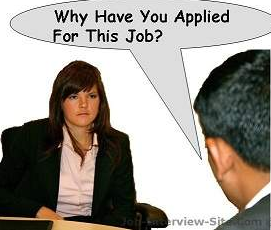





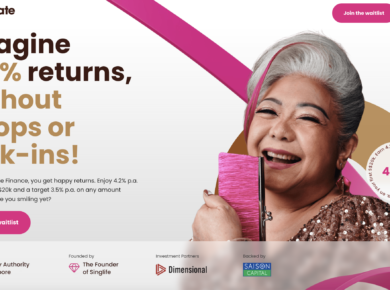
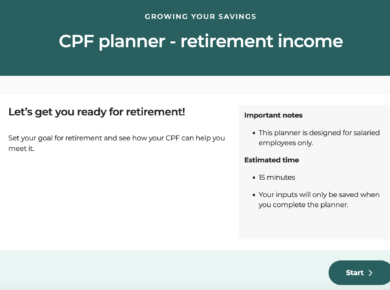


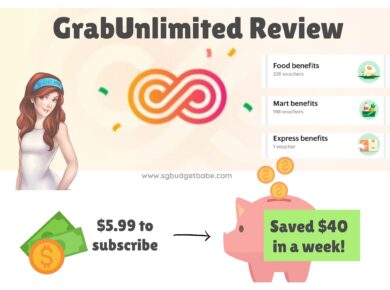
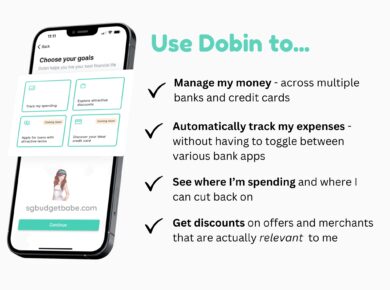
4 comments
Tks very much for your post.
Avoid surprises — interviews need preparation. Some questions come up time and time again — usually about you, your experience and the job itself. We've gathered together the most common questions so you can get your preparation off to a flying start.
You also find all interview questions at link at the end of this post.
Source: Interview Questions & Answers:
Best rgs
These are literally my most feared questions in interviews and I'm so glad someone has tackled them. I always feel so fake and phoney when answering these kind of questions in an interview. It's like we all fall victim to it and we should know its coming. But hey not everyone can be original? I shall be using your advice for sure.
Celine Goodson @ RMS Recruitment
Searching for the Ultimate Dating Site? Create an account and find your perfect date.
This was nice posts. And actually this will be included for those who are getting ready with the interview of many companies especially for freshers. SO please keep update like this.
Hr Consultancy in Chennai
Comments are closed.